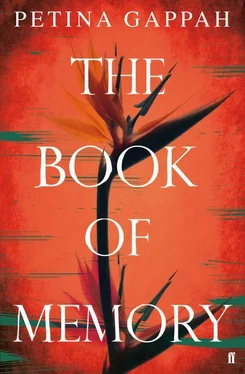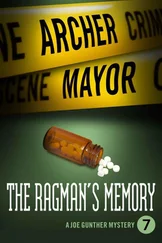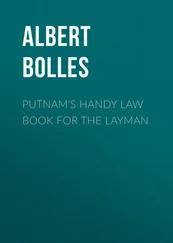My mother nudged me. ‘Why don’t you answer?’ she said. ‘Why do you act as though you do not understand such a simple sentence? Is this what you come number one for?’
I did not reply. I felt that the white man was my amulet against a sudden smack, and indeed, my mother did not touch me at all despite her irritation. My father spoke for me and said, ‘She is called Memory.’
Then Lloyd said, ‘Speak, Mnemosyne.’
That is the thing about memory. Sometimes you come to understand the things you cannot possibly have known; they make sense and you rewrite the memory to make it coherent. I did not understand then what he said, and looked at the ground. He and my parents talked; I only understood fragments of their conversation but they seemed to be talking about my illness and me and what grade I was in at school. I continued to eat my chips as they talked. Then the waiter brought the bill, the man paid for our food and we got up to leave.
‘I will pick her up at twelve tomorrow,’ the man said. ‘I am glad that your wife approves, because I could not have done it otherwise.’
He took something from his pocket. It was a large wad of green bills, twenty-dollar bills; they were the highest-denomination notes in those halcyon days, before our million- and billion-dollar bills. He handed the money to my father, but it was my mother who reached out to take it. She took the money without counting it and stuffed it into her bra.
We went back home. That night, my father said to me that I was to pack my clothes, and say goodbye to Joyi because I was leaving Mufakose the next day. ‘You are going to live with that man we saw today,’ my father said. ‘He is a doctor and you will live with him. You are going to go to his house, and you will live there with him and his wife, and it will be better for you, and you will go to a good school and you will stay there just for a little while, for just a short time until you are better.’
He said all this very fast, almost as though he wanted to believe it himself. Even believing, as I did, that anything could happen at all, that anything was possible, it seemed the most fantastical of things that a white man that I had never heard of, and whom I had only seen once for a very short time, could take me in for no reason other than to heal me, send me to school, and then return me to Mufakose.
It was when my mother made vetkoeks the following morning and let me eat all of them that I realised, as I vomited all over my new dress and still my mother said nothing, that my father had been serious. I was leaving my home and my remaining sister. I was leaving my mother and my father and everything that I knew.

The dreams that startled me awake in my first years with Lloyd have come back to me in Chikurubi. And when I am not dreaming of the creature that comes to me at night and speaks in my mother’s voice, I find myself walking through the rooms and corridors of Highlands police station, past broken furniture and windows coated with what seems like centuries of grime, past peeling walls, the laughing faces of the officers, past the ceiling leaking blood.
I see chairs with cracked leather through which the discoloured stuffing shows. I smell the fetid smell of too many unwashed bodies in the airless space. Above all, I hear the mocking laughter of Officer Dimples and Officer Rollers in the interview room. I hear their echoing questions.
‘Where in this country do such things happen?’
‘Where do people sell their children to complete strangers?’
‘If such a thing really happened as you say it did, such an outrageous thing, why were your parents not tried?’
‘Why did no one report it?’
‘Why didn’t you report it?’
‘Why were they not arrested?’
‘Why was there no prosecution, no trial, no public shaming?’
Perhaps Vernah Sithole, surrounded by law reports and books that set out precise punishments to be meted out for the kind of crime that my parents committed, is reading these notebooks and asking herself the same questions. Perhaps, reading this, she will regret that she agreed to represent a fantasist. And even you, probably conditioned to believe in the worst that can come out of darkest Africa, are asking yourself whether this really happened.
Those questions from the police officers at Highlands, the questions that you and Vernah are probably asking yourselves now, are questions that I have asked myself countless times over the years.
It all seems so utterly improbable.
And yet it happened.
I used to think sometimes that all those books about abandoned Victorian waifs that I feverishly devoured as a child had somehow confused me; that I had mistaken my life for that of Elizabeth-Jane Henchard, sold along with her mother, or Oliver Twist, sold to be a mourner at children’s funerals. But I did not imagine the wad of notes that passed between Lloyd and my parents in the tearoom at Barbours. I did not imagine my mother stuffing those same notes into her blouse. I did not imagine my father then handing me over to Lloyd at the Post Office without so much as a backward glance.
Most objectively of all, incontrovertibly factual: I have not imagined my own reality. I spent the first nine years of my life with my parents and my sisters, Joy and Moreblessings, and with the memory of our dead brother, Gift, at 1468 Mharapara Street in Mufakose. I then spent the next nine years with Lloyd, and Poppy and Namatai, at Summer Madness in Umwinsidale. I have not imagined Poppy, with her paper-thin skin and Ella Fitzgerald records. Or Lloyd. Or Liz Warrender and Sandy Knight-Bruce. I have not imagined Zenzo.
For as long as I lived with Lloyd, we did not talk about the circumstances that had brought us together. Whenever I felt the subject looming between us, I did everything I could to deflect it. Lloyd did the same. On the rare occasions that he spoke of how I came to be living with him, he spoke only of ‘taking me in’, of ‘giving me a home’. He did not speak of buying me, of purchasing me as you might an appliance or piece of clothing.
‘I took you in, Mnemosyne,’ he said to me once, ‘because giving you a home was the right thing to do. It was the only thing to do. You will understand it all when the time is right.’
I thought that if I said it out loud, that if I said, even to myself, that my mother and father had sold me to a stranger, it would make it more real than it already was.
You see, I thought at first that I was going to be returned home. It was all my mother’s idea, I thought, because she had taken the money. She would see this as the truth of Reverend Bergen’s prophecy. My father would make her see sense, I thought, and he would come for me. They would go home, and they would see my empty place on the bed in the speya , they would see my clothes in the wardrobe and say, ‘We miss Memo.’
Or perhaps Lloyd would return me himself.
When I thought of this particular possibility, my mind seemed to freeze. I could not see how this could ever happen. I tried to imagine it, Lloyd getting into the battered Land Rover that had brought me to Umwinsidale, driving down Enterprise Road into town, past Rugare and Kambuzuma and into Mufakose, crawling up the street while Nhau and Promise and Mharapara’s children ran in the dust that he left in his wake.
MaiWhizi would watch, open-mouthed, from her veranda. ‘Zvariri bhais’kopu,’ she would say, and rush to tell the news to neighbours as far as Zongororo Street. I simply could not see it.
Читать дальше













